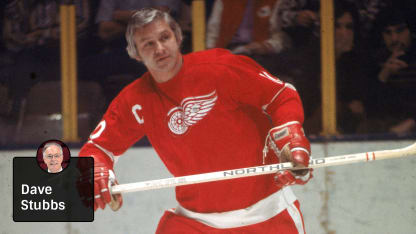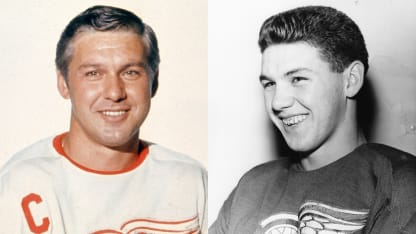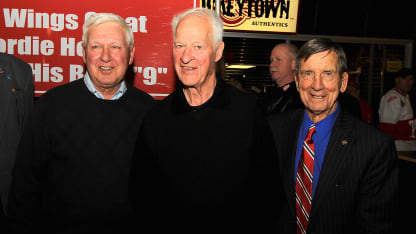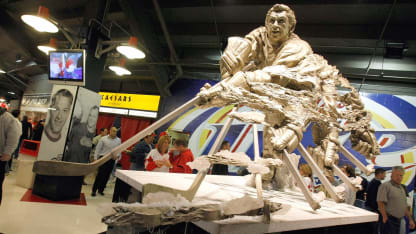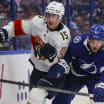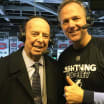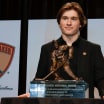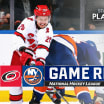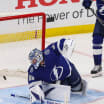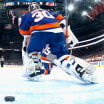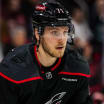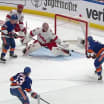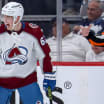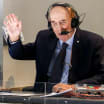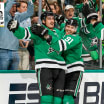He chuckled, then qualified the comment.
"But it's a whole different story nowadays. Years ago, once you were in the League, you wanted to stay there at all costs. You played come hell or high water. Now these guys are skating nearly 12 months of the year. I remember we'd play the last game and you'd throw your skates aside and you wouldn't look at them until training camp the following September.
"We'd intentionally put on 10-12 pounds over the summer so you had something to lose in training camp and make it look good, make it look like you were really trying, I guess," he said, laughing again.
Delvecchio endured two long, painful droughts with Detroit, first in the late 1950s when Adams traded away Sawchuk, outstanding young goalie Glenn Hall, Lindsay, Kelly and promising young forward Johnny Bucyk, then a decade later at the start of what would be known as the Dead Wings era.
Loyal to a fault, he was convinced to coach the team from 1974-77, doubling as GM as the Red Wings clung to the hope that his sterling name would distract fans from the shabby product on the ice. But he was too much of a gentleman for either job, taking every loss personally while he chugged antacid like it was water.
Delvecchio retired from the Red Wings organization in 1977. He was inducted into the Hall of Fame that year as much for his leadership and grace as for the 13 seasons in which he scored 20 or more times and his career NHL totals of 456 goals and 1,281 points, plus 35 goals and 104 points in 121 playoff games.
Forty-two years after he skated in his final game, Delvecchio remains hugely popular in Detroit. The fan mail still arrives and shoppers still stop him in the meat aisle for a word.
He'll attend a dozen or so games this season, a fan of the NHL's Original Six teams if few others. Delvecchio misses the long-since-demolished Detroit Olympia, his old home and one of hockey's great arenas, but he likes what he's seen of the city's still-rising new rink that will become the Red Wings' new home after one final season at Joe Louis Arena.
"I'm looking forward to seeing the new place," he said, then laughed once more before setting off to finish his grocery shopping. "I just hope I'm still around to see it."
